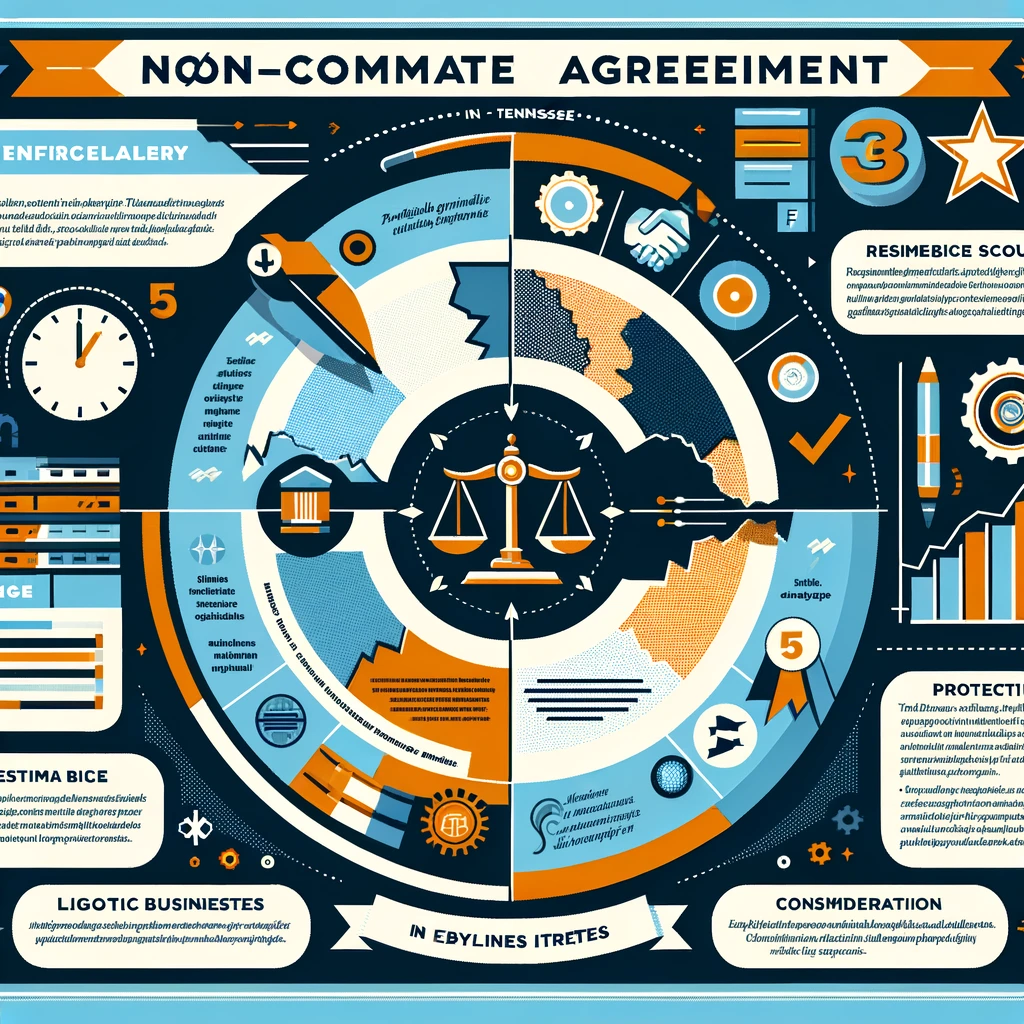

In the evolving landscape of employment law, non-compete agreements in Tennessee have garnered significant attention from employers, employees, and legal practitioners alike. These agreements, designed to protect a business's proprietary information and prevent unfair competition, must navigate the fine line between safeguarding business interests and preserving an individual's right to work. This article delves into the intricacies of non-compete agreements in Tennessee, highlighting legal frameworks, enforceability criteria, and practical advice for drafting effective contracts. We'll also reference authoritative resources to enhance the article's credibility and usefulness.
A non-compete agreement, also known as a covenant not to compete, is a legal contract between an employer and an employee. It restricts the employee's ability to engage in business activities that compete with their former employer, within a specific geographic area and for a predetermined time period, after the employment relationship has ended. The primary aim is to protect the employer's legitimate business interests, including trade secrets, confidential information, and customer relationships.
Tennessee law acknowledges the validity of non-compete agreements but imposes strict standards for their enforceability. The Tennessee courts have established that for a non-compete agreement to be enforceable, it must:
For further reading on the legal framework governing non-compete agreements in Tennessee, the Tennessee Bar Association provides comprehensive resources and articles that delve into state-specific legal principles (Tennessee Bar Association).
The enforceability of non-compete agreements in Tennessee hinges on several key criteria:
The Tennessee Department of Labor & Workforce Development website (TN.gov/workforce) offers guidelines and information regarding employment practices and laws, including aspects related to non-compete agreements.
When drafting a non-compete agreement in Tennessee, it's crucial to ensure that the contract is clear, precise, and tailored to meet the specific needs of your business while remaining fair and legally enforceable. Here are some best practices:
For additional guidance on drafting non-compete agreements, Vanderbilt University Law School often publishes scholarly articles and resources that can provide valuable insights (Vanderbilt Law).

Create & Review Your Contracts 10x Quality and Ease
Lawyer-level AI handles all your contract needs, with real lawyers providing safeguarding support